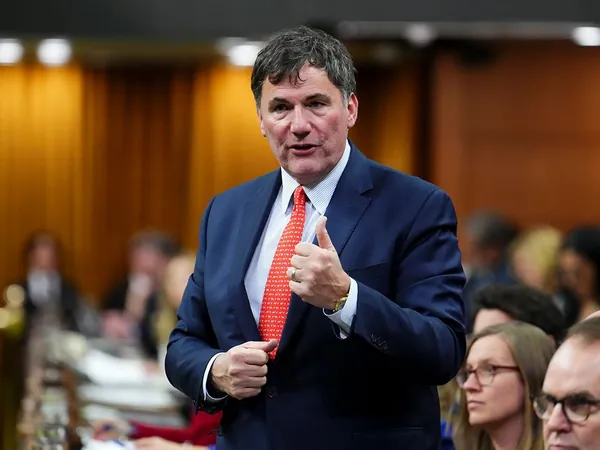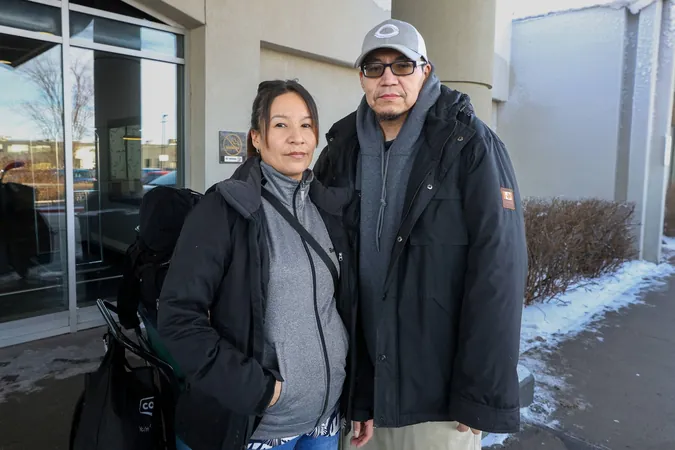
Unlocking Heart Health: The Game-Changer of Culturally Tailored Patient Education
2024-12-09
Author: Emily
In the fight against heart disease, which claims a staggering 17.9 million lives annually, understanding cultural nuances is more vital than ever. A groundbreaking study has revealed that patient education tailored to specific cultural contexts significantly enhances heart health outcomes. This gives newfound hope against the world’s leading cause of death – cardiovascular disease.
A Stark Reality
While heart disease presents a worldwide challenge, its grip is particularly tight on ethnic minorities and migrants in Western countries, who often face worse health outcomes. Barriers such as language differences, cultural misunderstandings, and inadequate health literacy complicate their ability to effectively manage chronic conditions. It’s clear: addressing heart health is not just about providing medical access; it’s about understanding the cultural landscapes of diverse populations.
The Power of Culturally Tailored Education
Research shows that a one-size-fits-all educational model is inadequate. A recent scoping review involving 938 participants from varying backgrounds (Hispanic, Italian, Greek, and economically disadvantaged communities) found that culturally adapted education significantly boosted self-care practices, improved knowledge regarding heart disease, and led to tangible health improvements, such as reduced cholesterol levels and weight loss.
This isn’t just about translating medical jargon – it’s about respecting and integrating cultural beliefs into educational programs. For instance, in a study where Italian and Greek participants received phone-based coaching, outcomes varied. Italian-speaking participants achieved their waist circumference goals more successfully than their Greek-speaking counterparts, highlighting how cultural factors dynamically influence health behaviors.
Overcoming Health Literacy Barriers
Health literacy is crucial, transcending basic understanding of medical terms. It encompasses the ability to navigate complex healthcare systems and make informed decisions. For those facing cultural and linguistic barriers, the challenge is akin to solving a complex jigsaw puzzle without all the pieces or guidance.
Culturally tailored patient education builds trust and adapts communication, making it accessible and relevant to diverse communities, ultimately empowering individuals to take control of their health within their cultural frameworks.
Innovative Strategies for Effective Interventions
Creativity is key in crafting culturally relevant educational strategies. Oral storytelling can play a crucial role in communities that value narrative as a means of knowledge transfer. Additionally, using visual aids, interactive videos, and hands-on activities caters to diverse learning styles, ensuring that every individual grasps the important health messages being conveyed.
Moreover, language accessibility cannot be overlooked. Health materials need thorough translation and cultural adaptation – a job for interpreters who can bridge the gap between medical terminology and cultural context, ensuring the message resonates.
Community Engagement is Vital
The success of culturally tailored programs hinges on community involvement. Building trust through active engagement reduces power imbalances and ensures interventions reflect local knowledge. This process is particularly important in historically marginalized communities. Health care providers must listen, co-design, and evaluate interventions collaboratively, allowing community voices to guide the healthcare narrative.
Looking Ahead: A Promising Future
While the findings from this research pave the way for culturally tailored education, it is important to note that these studies had small sample sizes – indicating a need for more extensive, robust research. Through consistent methodologies and larger studies, the health community can pinpoint effective strategies and adapt them to serve varying cultures more efficiently.
Despite these challenges, the future is bright. Transitioning from standardized approaches in patient education to celebrating cultural diversity can empower individuals to take charge of their health. This shift necessitates a genuine investment from healthcare providers, fostering trust and addressing diverse community needs – a process that could yield remarkable benefits.
As cardiovascular disease continues to impact millions globally, the need for culturally relevant education is paramount. By understanding and embracing the realities of the communities they serve, healthcare providers can develop interventions that not only inform but inspire individuals to pursue healthier lives. This could be the critical turning point in improving heart health outcomes around the world. Don’t miss out on this transformative approach – it’s time for healthcare to meet culture where it truly counts!









 Brasil (PT)
Brasil (PT)
 Canada (EN)
Canada (EN)
 Chile (ES)
Chile (ES)
 España (ES)
España (ES)
 France (FR)
France (FR)
 Hong Kong (EN)
Hong Kong (EN)
 Italia (IT)
Italia (IT)
 日本 (JA)
日本 (JA)
 Magyarország (HU)
Magyarország (HU)
 Norge (NO)
Norge (NO)
 Polska (PL)
Polska (PL)
 Schweiz (DE)
Schweiz (DE)
 Singapore (EN)
Singapore (EN)
 Sverige (SV)
Sverige (SV)
 Suomi (FI)
Suomi (FI)
 Türkiye (TR)
Türkiye (TR)